Looking for the best mower for an allotment?
In this guide, we’ve shared which mowers we think are the best suited for keeping your allotment grass short.
✅Key Takeaways:
The best mower types for allotments are lightweight, affordable lawn mowers that you’re happy to store in an allotment shed.
Manual lawn mowers are best for small allotments. If you have a lot of grass to cut, upgrade to a more powerful mower, like a cordless mower or a petrol mower.
Some features to look for in the best lawn mower for allotment paths are a lightweight frame, a cord-free design, good portability, and affordability.
Table of Contents
🤷♂️ Which Mowers Are Best For Mowing Allotments?
Based on our experience, the best mower type for most allotment mowing situations is a manual lawn mower.
In most situations, the grass isn’t the star of the show in an allotment plot. You might have a grassy path or border that needs cutting – enough to warrant a lawn mower rather than a strimmer, but not enough to justify something large and expensive.
Manual lawn mowers are ideal for allotments because they’re lightweight and affordable, and they make quick and easy work of mowing smaller spaces.
I personally live across the road from an allotment, and manual lawn mowers are the most popular mower types that I’ve seen people use on their plots.
If you have a larger area of grass to cut, you might want to upgrade to a cordless lawn mower.
Cordless mowers are powered by a battery, so they’re less physically demanding than manual mowers. Rather than having to put in all the work yourself, you only have to focus on pushing the mower back and forth, while the mower’s motor will power the blade. You’ll just need to charge the battery at home before you use the mower on your allotment.
While we think manual lawn mowers and cordless battery mowers are the best mower types for allotments, your situation might call for a different mower type, and that’s why it’s important to be aware of all your possible options.
Read on for an overview of all the mower types you can use to mow an allotment.
🏆 Best Mower Types For Allotments
Here we’ve shared our top recommended mowers for allotments.
💪 Manual Mowers
Manual lawn mowers are person-powered mowers that are ideal for mowing smaller spaces.
We think a manual mower is the best push mower for allotments because it’s affordable, small enough to squeeze into a small allotment shed, portable, and easy to use, with no battery to charge or fuel to top up.
Our personal favourite mower in this category is the Bosch AHM 38 G Manual Garden Lawn Mower, which has a decent 38cm cutting width to get the job done quickly, and is super lightweight at just 6.9 kilograms.
The downside of a manual mower is that it’s quite physically demanding because your pushing powers the blades to spin as well as moving the mower forward.
Using a manual push mower to cut long grass will be an intense arm workout, and we don’t recommend manual mowers for large allotments because of the extra effort involved in mowing. It just wouldn’t be efficient.
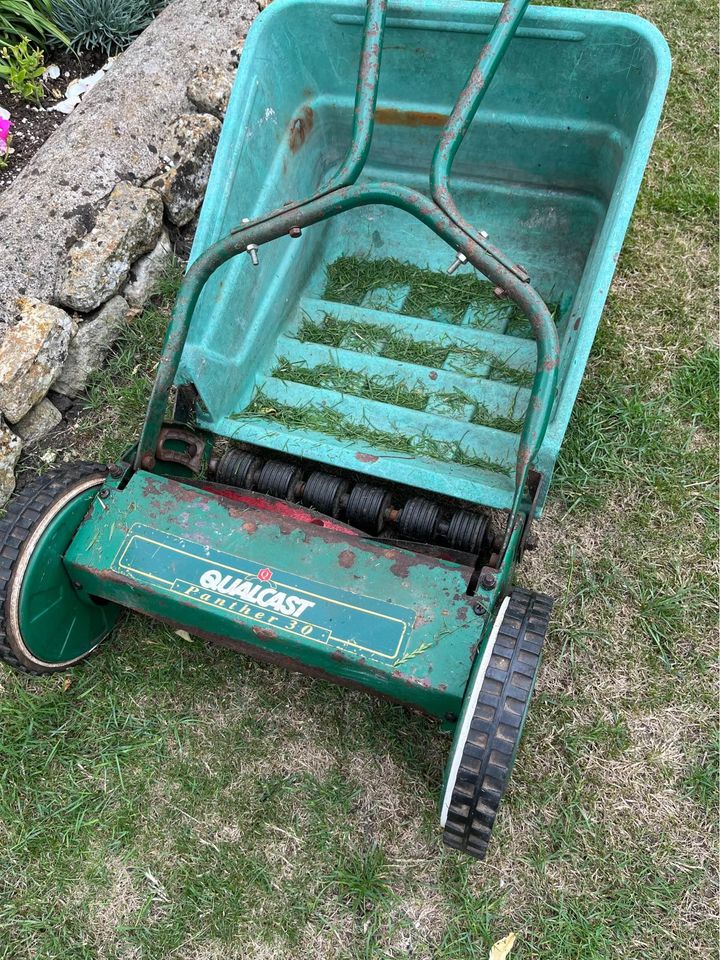
🔋 Cordless Lawn Mowers
Cordless electric mowers are a step up if you have a slightly larger allotment space and a manual mower doesn’t quite offer the performance power you need.
These mowers are battery-powered, so you’re not tethered to a cord. They cover more ground at a faster rate, and they can handle longer grass and uneven ground better than manual mowers.
A cordless lawnmower has a larger grass box, too, so if you need to collect grass as you mow, you can do so with fewer empties.
With that said, we think some people might not like having to remember to charge the battery before they plan to mow their allotment, and battery mowers can sometimes struggle with tough or thick grass.
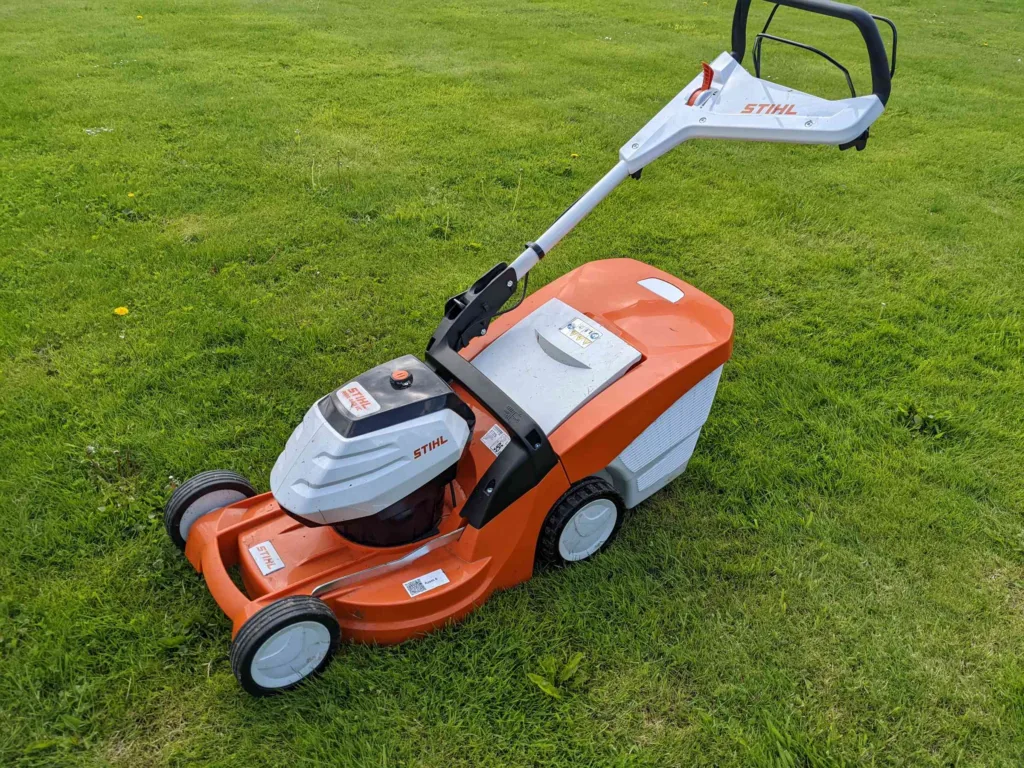
🛢 Petrol Lawn Mowers
If you have a very large allotment space that you need to cut regularly, and you’re often met with the challenge of long, thick grass, we think petrol mowers are the best lawn mowers for your situation.
A petrol lawn mower is, of course, cord-free, and unlike a cordless battery mower, it doesn’t have a limited battery life that could potentially cut your mowing sessions short. You can mow for as long as you have fuel in the tank. Petrol engines are much more powerful than electric motors, so you can cut faster and more effectively.
There are a few reasons why we don’t recommend a petrol mower for all allotment mowing situations:
They’re big and bulky
They’re expensive
For most people who just need to cut grass in a smaller space, a petrol mower is impractically sized and unnecessarily expensive for the job at hand.
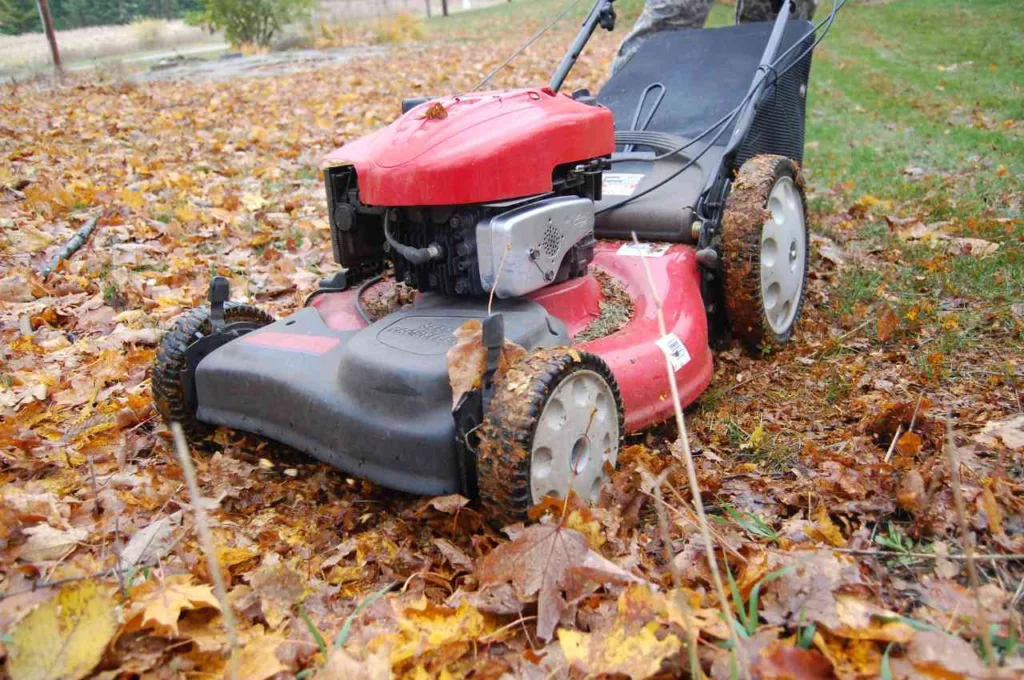
♻️ Mulching Mowers
A mulching mower is worth considering if you don’t want the hassle of collecting grass clippings and traipsing across to your allotment’s shared compost pile.
Mulching mowers usually come with a grass box or a grass collection bag, but give you the option to bypass conventional grass collection with a dedicated mulching attachment.
The mower’s mulching blade cuts grass into very small pieces, then feeds it back onto the lawn. The grass is small enough to decompose quickly and doesn’t need to be raked or swept up after mowing, helping to shave time off your mowing job.
Some cordless electric mowers and petrol mowers have a mulching option, so look out for this feature if it’s important to you. Prepare to pay 20-30% more upfront for a mower that offers the benefit of mulching.
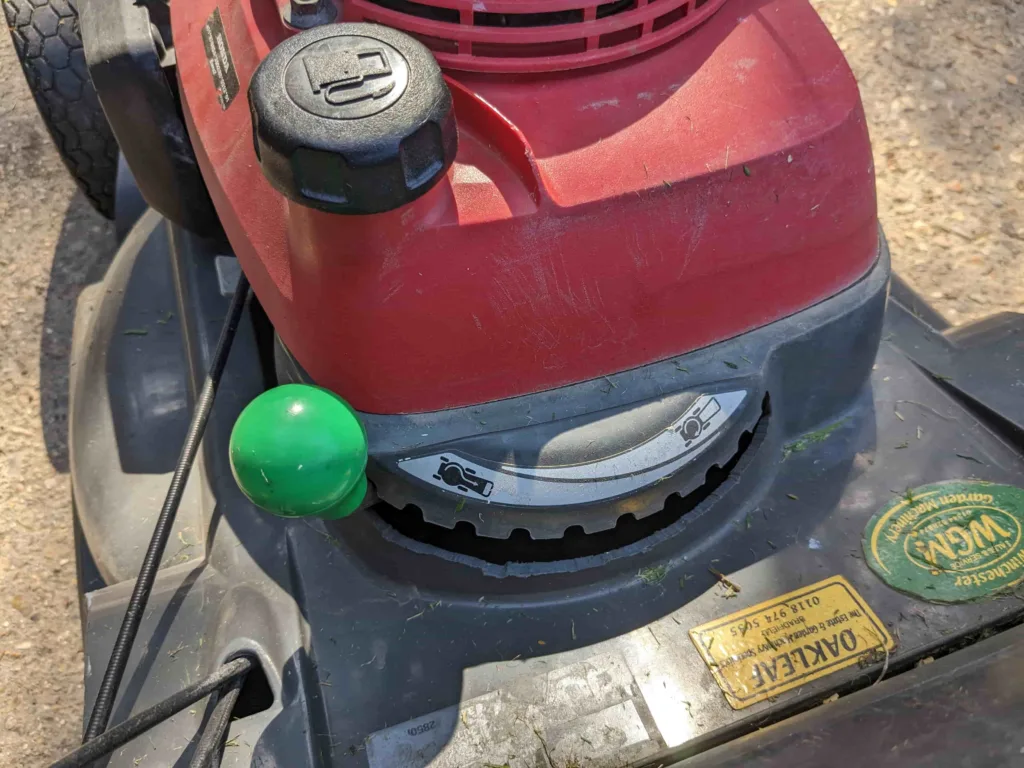
📡 Features To Look For In A Mower For Allotments
Here are some of the features to look out for in the best lawn mower for an allotment:
🏋🏼♀️ Lightweight Frame
First and foremost, a lawn mower for an allotment plot should be lightweight.
There are a couple of reasons for this:
You want to be able to easily transport the mower to the allotment in your car.
If you plan to store the mower in your allotment shed, you want it to be small and lightweight enough to slot into a small space and be easily accessible for quick mowing jobs.
A lightweight design might not be as much of a priority if you have a large allotment shed and you plan to exclusively store the mower there rather than transporting it in your car. It just depends on your personal situation.
🔌 Cord-Free Design
A cord-free design is an essential feature of a lawn mower for allotments. You won’t be able to use a corded electric mower in most allotments.
Since an allotment is usually an independent plot of land, the likelihood of having access to electricity is slim. You’ll need a lawn mower that runs independently, whether via a battery that you can charge in advance, or petrol that you can fill the tank with when necessary.
Manual push mowers are another option, requiring no third-party power source whatsoever – just your own push power.
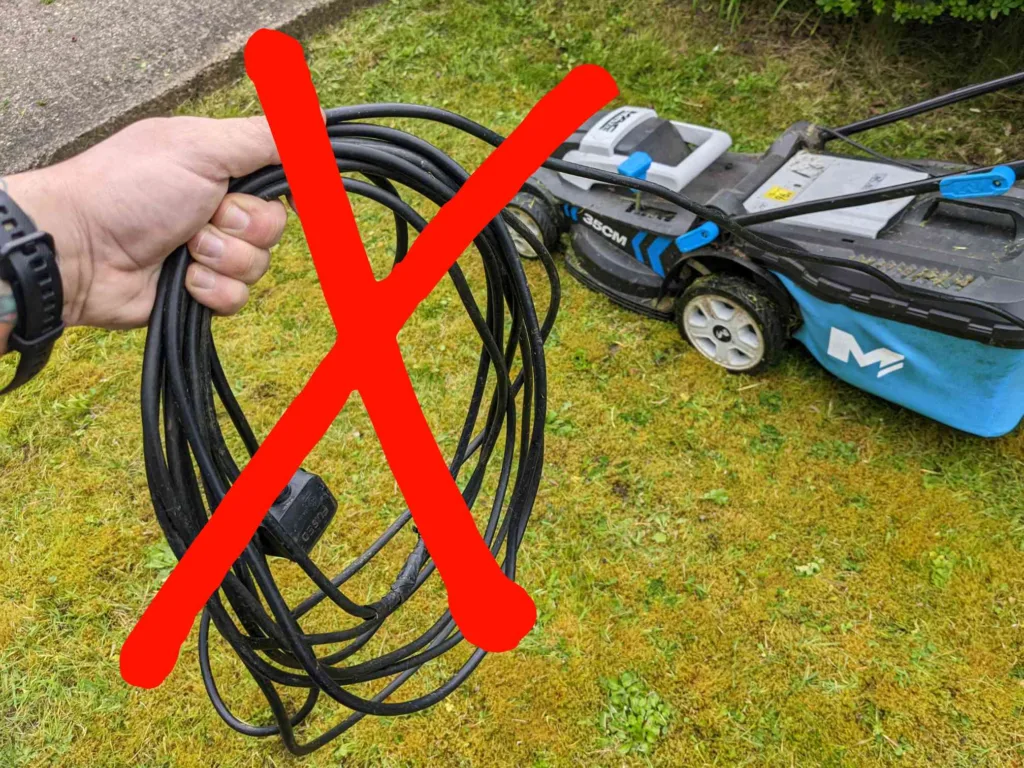
📦 Portability
Portability is another feature that may or may not be important in your allotment lawn mower, depending on your situation.
If you don’t have a shed on your allotment plot and need to bring a lawn mower with you from time to time, we recommend buying a portable lawn mower. You’ll find it easier to load the mower in your car and carry it to and from your plot.
Many mowers have foldable handles and special grips for carrying, so they travel well, take up limited space, and are easy to physically transfer from one place to another.
💰 Affordability
Affordability is important in an allotment mower for two reasons:
You may prefer to use a separate mower solely for your allotment, so you probably want it to cost less than the main mower that you use in your garden.
You might plan to store the mower in an allotment shed, in which case, the price of the mower needs to be low enough that it’s not an attractive bait for thieves, and in the worst-case scenario, you wouldn’t be devastated if it was stolen.
We recommend paying between £55 and £150 for a lawn mower that you plan to use exclusively on an allotment plot.
If you plan to buy a mower that you can transport between your allotment and your garden, you can spend more upfront because the mower will have more importance and (presumably) you’ll have a more secure location at home to store it.

🏁 Final Word
Hopefully, you’ve learned from this guide which mower types are best for allotments, and why.
Ultimately, you can use most mowers on an allotment. The only exception is corded electric mowers, because of the lack of access to a power supply.
If you’re keen to know which lawn mowers we currently recommend for allotments, take a look at our guide to the best lawn mowers for allotments.
Thanks for reading, and happy mowing!
